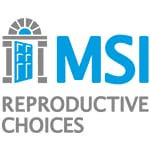Using Hotlines and Couples to Facilitate Access to Contraceptive Services in Uganda
HIGHLIGHTS
- Low utilization of sexual and reproductive health (SRH) services is a global challenge. To help eliminate barriers in seeking services, Marie Stopes Uganda (MSU) offers a toll-free hotline and electronic coupon system reaching 60,000 people per year.
- We partnered with MSU to increase uptake of sexual and reproductive health (SRH) services among clients who call into MSU’s free hotline and receive an e-coupon referral.
- Our results demonstrate the need for message tailoring by segment and addressing the intention to use contraceptives for this target audience to achieve maximum impact.
The Challenge
Low utilization of sexual and reproductive health (SRH) services is a global challenge. To help eliminate barriers in seeking services, Marie Stopes Uganda (MSU) offers a toll-free hotline and electronic coupon system reaching 60,000 people per year.
Counselors provide hotline callers with information and referrals to services with the coupon. Because coupon redemption could increase uptake of services, ideas42 set out to discover why people might not redeem them. We partnered with MSU to design a behavioral intervention to increase redemptions of e-coupons for SRH services among hotline clients.
Our Approach
To understand the low redemption rate of e-coupons for SRH services, we reviewed literature and administrative data and conducted a series of qualitative interviews and focus groups with a diverse group of Ugandans across MSU’s nationwide network. From these conversations, we learned several key insights:
- Most people were unaware of the value of the coupon and the cost of services at MSU.
- People tend to gravitate towards health clinics they’re familiar with and MSU clinics were not known by all callers.
- People didn’t think that people “like them” went to clinics and therefore were less likely to consider going to MSU.
- Clients often didn’t remember to use the coupon.
Based on these insights, we developed a text message intervention to facilitate SHR service uptake. After receiving a referral for SRH services, consenting adult clients received a series of behaviorally informed e-coupons via text messages to be redeemed for SRH services. The text messages included supportive language, salient deadlines for redemption, and highlighted the value of the coupon (which provided clients with an up to 10,000 Ugandan shilling discount (~U.S. $2.75) on service consultation, which could even make service free). Reminder text messages were sent in the evening at intervals of 6, 13, and 18 days after coupon origination.
Results
To understand the impact of our intervention, we conducted a randomized controlled trial over nine months—a period in which over 3,000 coupons were issued between hotline callers in the treatment and control group. We observed a 6.2% percent increase (33.6% to 35.7%) in redemption among the treatment group, however, this effect was not statistically significant. In response, we sought to use these results to generate learnings on how the intervention could be improved. Sub-group analysis suggested that our solution had stronger effects for men, for those who received text messages in the Luganda language, and for those who called the hotline on their own behalf. These findings highlight additional research opportunities to understand the drivers behind these differences.
Takeaway
Our findings demonstrate the potential importance of segmenting messaging for channels such as hotlines, which may have a very heterogeneous population of callers. Additionally, this research points to the need to address intention formation around contraceptives in addition to interventions such as the e-coupon, which intends to close the gap between intention and action.
Interested in our work applying behavioral science to global health? Email gh@ideas42.org or tweet at @ideas42 to join the conversation.
Partners










